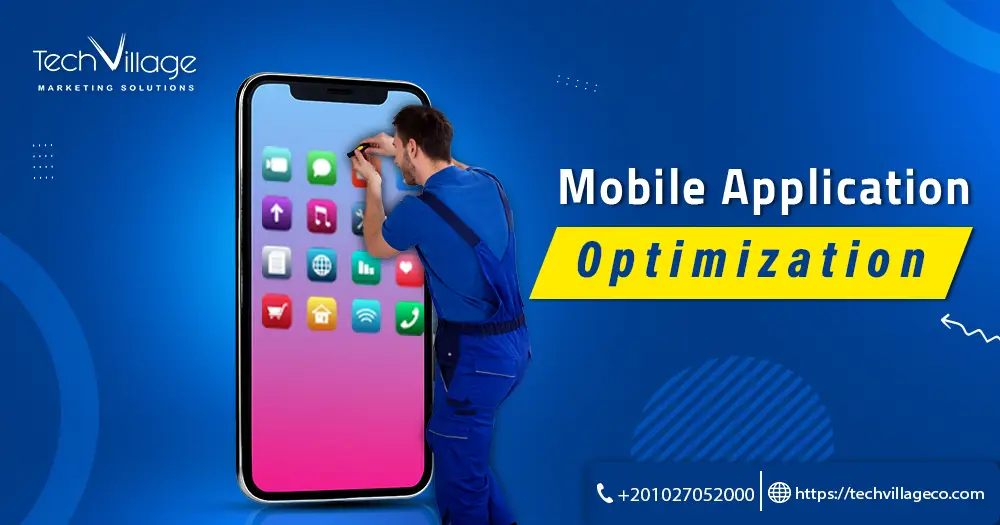mobile application optimization is a crucial process aimed at enhancing the overall performance, usability, and efficiency of mobile applications. In the fast-paced world of technology, users demand seamless experiences, swift load times, and intuitive interfaces from their mobile apps.
mobile application optimization involves streamlining code, refining user interfaces, and maximizing resource utilization to ensure applications function optimally on various devices and platforms.
This introductory aspect delves into the key components and strategies essential for achieving a high-performing and user-friendly mobile application optimization.
Table of Contents
ToggleWhat is optimization application?
A mobile application optimization refers to a software tool or program designed to enhance the performance, efficiency, or effectiveness of various processes, systems, or tasks. These applications use algorithms, techniques, or methodologies to streamline operations, improve resource utilization, or achieve specific objectives with maximum efficiency.
In the context of mobile application optimization, optimization applications focus on enhancing the performance, user experience, and overall functionality of the mobile app by addressing issues such as speed, responsiveness, resource usage, and user interface design.
These tools help developers fine-tune and optimize their applications for better usability and performance on different devices and platforms.
Why mobile app mptimization matters
mobile application optimization is crucial for several reasons:
1- Enhanced user experience: Optimized apps offer smooth and fast user interactions, keeping users engaged and satisfied. Quick load times, intuitive interfaces, and seamless functionalities contribute to a positive user experience.
2- Improved performance: mobile application optimization helps in efficient resource management, ensuring that the app runs smoothly even on devices with limited processing power or network capabilities. This enhances the app’s overall performance and reliability.
3- Higher retention and engagement: A well-optimized app encourages users to spend more time within the application, leading to increased user retention. Engaged users are more likely to revisit and recommend the app to others.
Read also: Mobile Applications The Essential Key To Simplify Life.
4- Cost efficiency: Optimizing an app reduces data usage, power consumption, and server costs by minimizing unnecessary operations and requests. This efficiency is beneficial for both the user and the app owner in terms of cost savings.
5- Competitive edge: In a saturated market, a well-optimized app can stand out among the competition. Users often choose apps that are fast, efficient, and provide a superior user experience over those that lag or have performance issues.
6- Higher app store rankings: App stores consider user engagement metrics and app performance when determining rankings. Optimized apps are more likely to receive positive reviews and higher ratings, which can lead to better visibility and more downloads.
7- Global accessibility: mobile application optimization ensures that the app functions well across various devices, screen sizes, and network conditions. This allows for a broader user base and increased accessibility, potentially reaching a global audience.
8- Monetization opportunities: An optimized app with a better user experience can attract more users, resulting in increased opportunities for in-app purchases, ad revenue, subscriptions, or other monetization strategies.
9- Adaptability to updates: Optimized code and streamlined processes make it easier to implement updates, new features, or security patches. It allows for a faster and smoother transition when introducing changes to the app.
Here’s: Mobile Application And Device Platform.
What are the 5 steps of mobile application optimization?
mobile application optimization involves a series of steps to enhance performance and user experience. Here are five key steps which we follow in tech village:
1- Performance analysis and profiling:
- Evaluate the app’s current performance using profiling tools to identify bottlenecks, memory leaks, and areas for improvement.
- Analyze CPU usage, memory consumption, network requests, and rendering times to understand performance challenges.
2- Code and algorithm optimization:
- Refactor and optimize the codebase to improve efficiency, reduce redundant operations, and enhance speed.
- Optimize algorithms to ensure the app’s critical processes execute in the most efficient manner, improving overall app performance.
3- UI/UX optimization:
- Streamline the user interface and user experience to make the app more intuitive and responsive.
- Optimize images, animations, and layouts to ensure quick rendering and a visually pleasing experience.
4- Network and data optimization:
- Minimize network requests and reduce the amount of data transferred to improve app loading times and reduce strain on the network.
- Implement caching mechanisms to store frequently accessed data locally, reducing the need for repeated requests to the server.
5- Testing and iteration:
- Conduct rigorous testing across various devices, operating systems, and network conditions to ensure the optimized app performs well in different scenarios.
- Collect feedback from real users to identify any remaining performance issues or areas for further improvement.
- Iterate based on testing results and user feedback, making necessary adjustments to achieve the desired level of optimization.
Get to know: How To Upload An Application To Google Play.
The advantages of app optimization
mobile application optimization offers several advantages that are essential for a successful mobile application:
1- Enhanced user experience:
- Faster load times, smooth navigation, and improved responsiveness lead to a more satisfying user experience, increasing user retention and engagement.
2- Increased user retention:
- Users are more likely to keep using and revisiting an app that performs well and meets their expectations, resulting in higher user retention rates.
3- Improved app performance:
- Optimization helps in reducing app crashes, freezes, and other performance issues, ensuring a seamless and reliable app performance for all users.
4- Better app Store rankings:
- A well-optimized app tends to receive higher ratings and positive reviews, leading to improved rankings on app stores and increased visibility among potential users.
Read also: Android App Features List.
5- Increased conversion rates:
- A faster and smoother app experience can lead to higher conversion rates for in-app purchases, subscriptions, or any other desired user actions.
6- Broader audience reach:
- Optimization ensures the app functions well on a variety of devices, making it accessible to a larger audience and increasing its potential user base.
7- Competitive advantage:
- In a crowded app market, an optimized app can stand out from the competition by providing a superior user experience and attracting more users.
8- Adaptability to new features:
- An optimized app is easier to update and modify, allowing for swift integration of new features or improvements without compromising performance.
9- Positive brand image:
- A well-optimized app reflects positively on the brand, showcasing a commitment to quality, efficiency, and a great user experience.
Conclusion
In conclusion, mobile application optimization is an ongoing endeavor vital for ensuring an app’s success in a competitive digital landscape. By continuously refining performance, responsiveness, and user engagement, developers can deliver a superior experience to users.
FAQ
How long can it take to develop a mobile app?
The time it takes to develop a mobile app can vary significantly based on several factors, including the complexity and scope of the app, features and functionalities, platform(s) targeted (e.g., iOS, Android), design complexity, team size, and the development approach.
How can I speedup my mobile app development?
To accelerate mobile app development without compromising quality, consider implementing the following strategies: Prioritize Features and MVP (Minimum Viable Product), Use Cross-Platform Development Frameworks, Leverage Code Libraries and Templates.

 AR
AR





